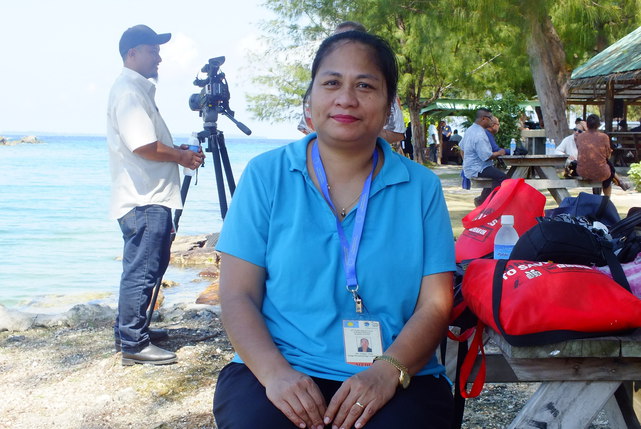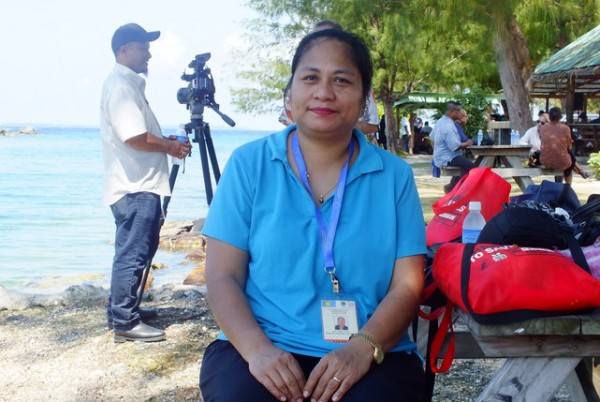The International Press Institute (IPI) today joined 28 other members of IFEX in calling on Tongan Prime Minister Samuela ʻAkilisi Pohiva to end the harassment of local journalist Viola Ulakai and to cease threats to have her suspended.
Ulakai, head of programmes and news at the publicly-owned Tonga Broadcasting Commission (TBC), had been urging the government to answer questions regarding a controversial education reform proposal and offered to arrange a press conference that would give the media the opportunity to press the government on the issues at hand.
Ulakai’s proposals were rejected, ostensibly because she did not have permission to arrange such a conference. Instead, the Prime Minister’s Office accused her of “being too insistent” and acting against the interests of the TBC, ordering Ulukai’s suspension pending further investigation.
In an open letter, the IFEX members appealed to Pohiva to adhere to the principles of good governance, transparency and the rule of law by allowing the media in Tonga to report without interference and to be forthcoming in response to legitimate questions concerning the activities of the government.
The IFEX members also urged the government to work with the Tongan Media Council to sort the matter out instead of resorting to punitive measures.
The full text of the letter to Prime Minister Phiva appears below.
Dear Prime Minister Pohiva,
The undersigned members of IFEX, the global network working to promote and defend freedom of expression worldwide, have observed with concern the recent events in which Ms. Viola Ulakai, Head of Programme and News at the publicly-owned Tonga Broadcasting Commission (TBC), has been targeted and harassed by the Government for what the Pacific Islands News Association sees as performing her journalistic duty to ask hard questions of the government regarding a matter of national interest.
The harassment that Ms. Ulakai has faced stems from her attempts to obtain information regarding a controversial reform proposal at the Ministry of Education. Ms. Ulakai had tried on a number of occasions to arrange a press conference that would give the media the opportunity to press the government on this initiative – to no avail. In what appears to be a direct result of her repeated attempts, the Prime Minister’s Office accused her of “being too insistent” and acting against the interests of the Tonga Broadcasting Commission, ordering the suspension of Ms. Ulakai pending further investigation.
Ms. Ulakai is a highly respected media personality not only in Tonga, but also in the Pacific region and internationally. To accuse her of acting in her personal interest while reporting on an issue of public interest appears to be a thinly veiled attempt to suppress an uncomfortable story for the government. We’d like to remind the Government that asking difficult questions is how the media provides the public with critical information on issues of national concern, which in turn fosters a healthy debate that produces policies responsive to public needs.
As a globally recognized pro-democracy advocate who was once imprisoned for standing up for press freedom, we appeal to you to adhere to the principles of good governance, transparency and the rule of law by allowing the media in Tonga to report free of interference and to be forthcoming in response to legitimate questions concerning the activities of a government ministry.
Furthermore, we urge the Government to work with and through the Tonga Media Council, a cross-section of Tongan media representatives, to sort this and similar matters out instead of resorting to punitive measures. Such a step would serve to foster dialogue and improve relations between the government and media, in the spirit of the traditional Pacific Islands values of mutual respect for the attainment of peace and harmony.
Signed,
Pacific Islands News Association
Adil Soz – International Foundation for Protection of Freedom of Speech
Afghanistan Journalists Center
Americans for Democracy and Human Rights in Bahrain
Association of Caribbean Media Workers
Canadian Journalists for Free Expression
Cartoonists Rights Network International
Center for Media Freedom and Responsibility
Centre for Independent Journalism – Malaysia
Freedom Forum
Freedom Foundation
Free Media Movement
Fundamedios – Andean Foundation for Media Observation and Study
Human Rights Network for Journalists – Uganda
Independent Journalism Center – Moldova
Instituto de Prensa y Libertad de Expresión – IPLEX
Instituto Prensa y Sociedad de Venezuela
International Press Institute
Media, Entertainment and Arts Alliance
Media Foundation for West Africa
Media Rights Agenda
Media Watch
National Union of Somali Journalists
Pacific Freedom Forum
Pakistan Press Foundation
Palestinian Center for Development and Media Freedoms – MADA
PEN American Center
Vigilance pour la Démocratie et l’État Civique
World Association of Community Radio Broadcasters – AMARC


